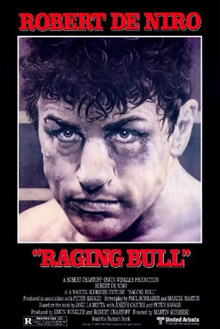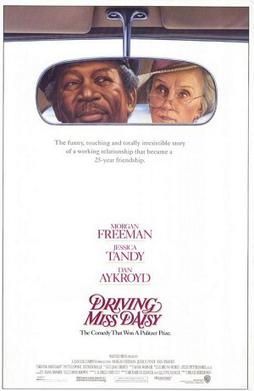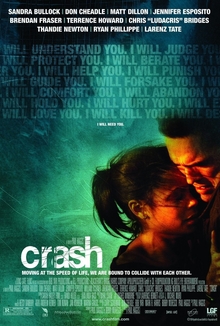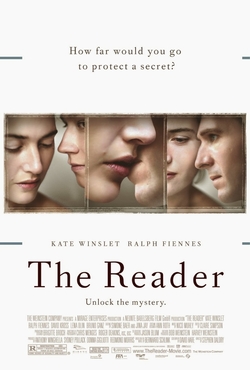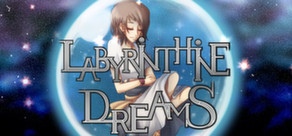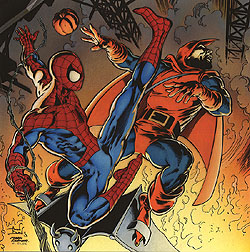 This is it, folks. Abandon hope, all ye who enter here.
This is it, folks. Abandon hope, all ye who enter here.So far, I've looked back at the Clone Saga and found a story that was definitely problematic but not beyond help. Take away a few of the lamer characters (Traveller, go die in a fire kthxbai) and refrain from dragging it out for so long and you've got a story that could work. There were compelling parts of this saga, which is probably why it feels so frustrating when it totally unravels. But hey, it's still probably better than the Spider-Man musical!
In all seriousness, this fourth volume of Marvel's new "Complete Clone Saga" collections offers the answer to why this storyline is so maligned. It's got a handful of the most infamous storylines of the era; the ones that made loyal fans like me want to throw our comics out the window. Despite my huge disappointment in the obnoxious plot twists, I stuck around for another year or so hoping things would get better. They didn't. Ironically, the Clone Saga finally ended shortly after that. However, given what came after (the "One More Day" story seems destined to be even MORE reviled than the Clone Saga), it was probably good I got out when I did.
The end of Volume Three left us with Ben Reilly offering to take Peter Parker's place in prison so that he could be with his wife while also hunting down the murderer who had framed both of them. For some reason, Peter also starts wearing the Scarlet Spider costume. I guess variety is the spice of life or whatever. The first story is "Lives Unlived," in which Peter encounters the clone of Gwen Stacy from the original 70s Clone Saga that laid the foundation for all this craziness. She's living with a clone of Professor Miles Warren (aka The Jackal). It may be worth noting that the name "Stacy" is misspelled towards the end of the story, a bit of a surprise considering how important Gwen is to the mythology. It may be an indicator of the level of care that went into some of these stories. Anyhow, she thinks her name is "Gwen Miles" and doesn't even know she's a clone. Well, she finds out and is pretty sad. Moving on.
Then we have the two part "Crossfire" storyline...and wow. I'm in awe at just how terrible this story is. It should come as no surprise at this point that Judas Traveller has a prominent role. In his ongoing cliche quest to understand the nature of good and evil, he creates a series of illusions to mess with Peter Parker, even claiming that he could restore Aunt May's soul. Then he supposedly takes Parker one day into the future, where NYC has been leveled...supposedly by Peter Parker himself. Right. Anyhow, everything goes wrong because Traveller shouldn't have been playing with alternate realities or whatever...as one character notes, "the space-time continuum is a delicate thing." Whatever. Traveller is stopped, Peter goes back to the present, nobody gives a shit. The single redeeming scene in this mess is a bit where Mary Jane reveals that a doctor has detected an "anomaly" in her unborn baby. The doctor's not sure why, but the couple knows that it's probably because of Peter Parker's radioactive blood. It's heavy, and manages to touch on real fears of aspiring parents despite the fantastical setting. Would have made a good story on its own, but we all clearly needed to be reminded of the delicacy of the space-time continuum. Sheesh, save it for friggin' Star Trek.
 Next up we have "Return of the Green Goblin." The twist this time is that the new goblin isn't a villian, but a Daily Bugle intern named Phil Urich who stumbled upon one of Norman Osborn's secret labs. As you might expect, adapting the look of a notorious supervillain gets him a fair share of negative attention and he gets blamed for a string of murders involving homeless people. Spidey investigates and finds out the real culprit is a guy named Firefist, who has been killing poor people out of some warped belief that they contaminate society as a whole. He was never seen again after this story. Maybe he found a better way to pursue his goals of screwing over the poor, like being elected to Congress. As for the new Green Goblin, he starred in a very short-lived series spearheaded by veteran Spider-Man writer Tom DeFalco that wasn't half bad.
Next up we have "Return of the Green Goblin." The twist this time is that the new goblin isn't a villian, but a Daily Bugle intern named Phil Urich who stumbled upon one of Norman Osborn's secret labs. As you might expect, adapting the look of a notorious supervillain gets him a fair share of negative attention and he gets blamed for a string of murders involving homeless people. Spidey investigates and finds out the real culprit is a guy named Firefist, who has been killing poor people out of some warped belief that they contaminate society as a whole. He was never seen again after this story. Maybe he found a better way to pursue his goals of screwing over the poor, like being elected to Congress. As for the new Green Goblin, he starred in a very short-lived series spearheaded by veteran Spider-Man writer Tom DeFalco that wasn't half bad.Now we move on to "The Trial of Peter Parker," a four-part saga ending with the revelation that nobody wanted. Ben Reilly, posing as Parker, faces the jury while Spider-Man hunts the real murderer - Kaine. Part One is mostly just a slugfest between the two of them while opening statements are given in the courtroom. But Judas Traveller shows up in Part Two, so we know we've hopped the train to Suckville. The second part regurgitates a plot we've all seen on Saturday morning television countless times - the hero is put on "trial" by his adversaries. Carnage is the prosecutor and Kaine must now defend Spider-Man. So after a few pages of talking, everyone fights and Traveller undoes everything and returns us to our regularly scheduled fight between Spider-Man and Kaine. Total waste of time.
 During Part Three, Kaine reveals his true identity. He was the Jackal's first attempt to clone Peter Parker, but the process went awry and he developed extreme versions of the original's powers. Jackal tossed him away as a failed experiment, but he lived on and understandably got very moody and depressed. So now we understand the ease with which he could frame Peter Parker. Spidey's had enough of slugging it out with Kaine and threatens to unmask himself in front of the jury as a last ditch effort to save Ben from the electric chair. Kaine really admires Parker and doesn't want to see him screw up his life, so he reluctantly confesses to the murders and is arrested. Part Four starts with what looks like a happy ending - Peter is exonerated and he and Ben have become true friends. Ben gets to start a new life for himself. Would be great if it ended here, right? Sadly, no.
During Part Three, Kaine reveals his true identity. He was the Jackal's first attempt to clone Peter Parker, but the process went awry and he developed extreme versions of the original's powers. Jackal tossed him away as a failed experiment, but he lived on and understandably got very moody and depressed. So now we understand the ease with which he could frame Peter Parker. Spidey's had enough of slugging it out with Kaine and threatens to unmask himself in front of the jury as a last ditch effort to save Ben from the electric chair. Kaine really admires Parker and doesn't want to see him screw up his life, so he reluctantly confesses to the murders and is arrested. Part Four starts with what looks like a happy ending - Peter is exonerated and he and Ben have become true friends. Ben gets to start a new life for himself. Would be great if it ended here, right? Sadly, no.Seward Trainer, a friend of Ben Reilly's who is a geneticist, wants to do some tests on Mary Jane's unborn child. During this process, the bombshell is dropped. The man everyone knows as Peter Parker is the clone...and Ben Reilly is the original. In other words, the protagonist readers have known since the 1970s (following the first Clone Saga) was a clone. That's mind-blowing, amirite?!?! I guess, but the reaction of the fans was not "OH COOL!" and I don't really get how Marvel could have expected that. No, the reaction was more like "What, really? (pause) That sucks!" So how does Parker take this news? Well, he goes berserk and accuses Reilly of trying to steal his life. They have a stupid fight and when Mary Jane tries to intervene, she takes one of Peter's blows and goes flying into a wall. Already brutal, and given that she was also pregnant...well, it was pretty upsetting. Peter feels instantly remorseful and runs off.
So believe it or not, the next story is even worse. Get ready for "Maximum Clonage," and yes, that was the real title. This six-part saga is preceded in the collection by an issue of New Warriors where the titular team of superheroes fight a clone of Spider-Man, but it's not Ben Reilly. So as "Maximum Clonage" starts, the New Warriors mistake the Scarlet Spider for this creature and they fight. The true culprit was "Spider-Cide," the shape-shifting clone from "The Mark of Kaine" storyline. He's helping The Jackal execute his nefarious plan - to kill the entire human race with a deadly virus and replace them all with clones that The Jackal will rule over. Yes, I'm serious.
So Peter Parker is acting like a total idiot during this story. Because he's a clone, he's somehow convinced that he has to go live in a hole alone somewhere or something, so he just abandons Mary Jane and winds up hanging out with The Jackal. Ben Reilly, who is also coping with the revelation that he has spent the last five years of his life thinking he was a clone, tries to talk some sense into Peter but Jackal won't have it. Reilly and Kaine wind up fighting an army of mindless Spider-Man clones.
 Meanwhile, Spider-Cide betrays The Jackal and almost kills him. However, it is Kaine who intervenes on the Jackal's behalf and dies heroically. Diminishing this whole incident is the fact that Kaine hated the Jackal and his change of heart isn't really explained very well - "You gave me life" is all we get.
Meanwhile, Spider-Cide betrays The Jackal and almost kills him. However, it is Kaine who intervenes on the Jackal's behalf and dies heroically. Diminishing this whole incident is the fact that Kaine hated the Jackal and his change of heart isn't really explained very well - "You gave me life" is all we get. By the time we get to the last chapter of this saga, everything has gone nuts. The writers have apparently just given up trying to keep these issues consistent with one another and there's literally a different artist at work every five pages or so. Jackal attemps to deploy his deadly virus, but is now attacked by the Gwen Stacy clone. During the scuffle, Gwen nearly falls to her death. That reminds everyone of the original Gwen's death, which was what caused Professor Warren to snap and become The Jackal in the first place. He attemps to save her, but falls to his death after shouting a cryptic warning. His plan is foiled, Peter returns to Mary Jane and now he and Ben must decide who will wear the Spider-Man webs.
This whole story was just a total fail. In addition to Parker's bizarre behavior and the overall goofiness of the plotline, there's a lot of little things that are lame. As one example, in part four of this story Kaine promises Reilly he has renounced his murderous ways and will not kill the attacking clones. In part five, he asks Reilly "why should you care if they die? They're only clones!" as he beats the hell out of them. And though it has been well-established that Spider-Cide has power similar to that of T-1000 and is thus virtually indestructable, he dies from falling off a buliding. "Maximum Clonage" is FULL of stuff like that and provokes a lot of very justified nerd rage.
Jeez, so what the hell happened? Well, I think it's clear that this whole "replace the hero" gimmick of the 1990s started with the Death of Superman saga, which is far more well-received than this. Marvel was jealous of its success and decided to do something similar, but why did The Death of Superman succeed where the Clone Saga failed?
 Death of Superman has a very clear three-act structure.
Death of Superman has a very clear three-act structure.1. Superman dies.
2. Four "Supermen" compete to take his place, with some claiming to be the real one.
3. The real Superman returns and all is well.
The "Knightfall" Batman story has almost an identical structure.
1. Bane breaks Batman's back.
2. Azrael takes over as the new Batman.
3. Bruce Wayne returns and defeats Azrael, who has gone off the deep end. All is well.
I guess the Clone Saga could have worked within this framework.
1. Peter Parker's clone returns.
2. The clone is revealed to be the real thing. He takes over as Spider-Man.
3. It turns out Peter Parker was the real one all along. All is well.
But since this saga concluded, some of the creators have spoken publicly about how the editorial board at Marvel actually wanted Ben Reilly to permanently become the new Spider-Man. Some of the editors were worried that having Peter Parker as a married father made him too "old" for the readers and that the parade of tragedies in his life had made him too dark and gloomy. With that in mind, we start to understand why Peter was behaving like such a jackass in these clone stories. The writers were trying to manipulate the readers into going along with their scheme to install Ben as the new Spidey...for good.
Didn't quite work out like yet. But in the next part of this series, we'll see them give it their best shot.
P.S. Also, I have another series that will start within the new couple of months or so. It will be more...complimentary...than this has been. More later.




